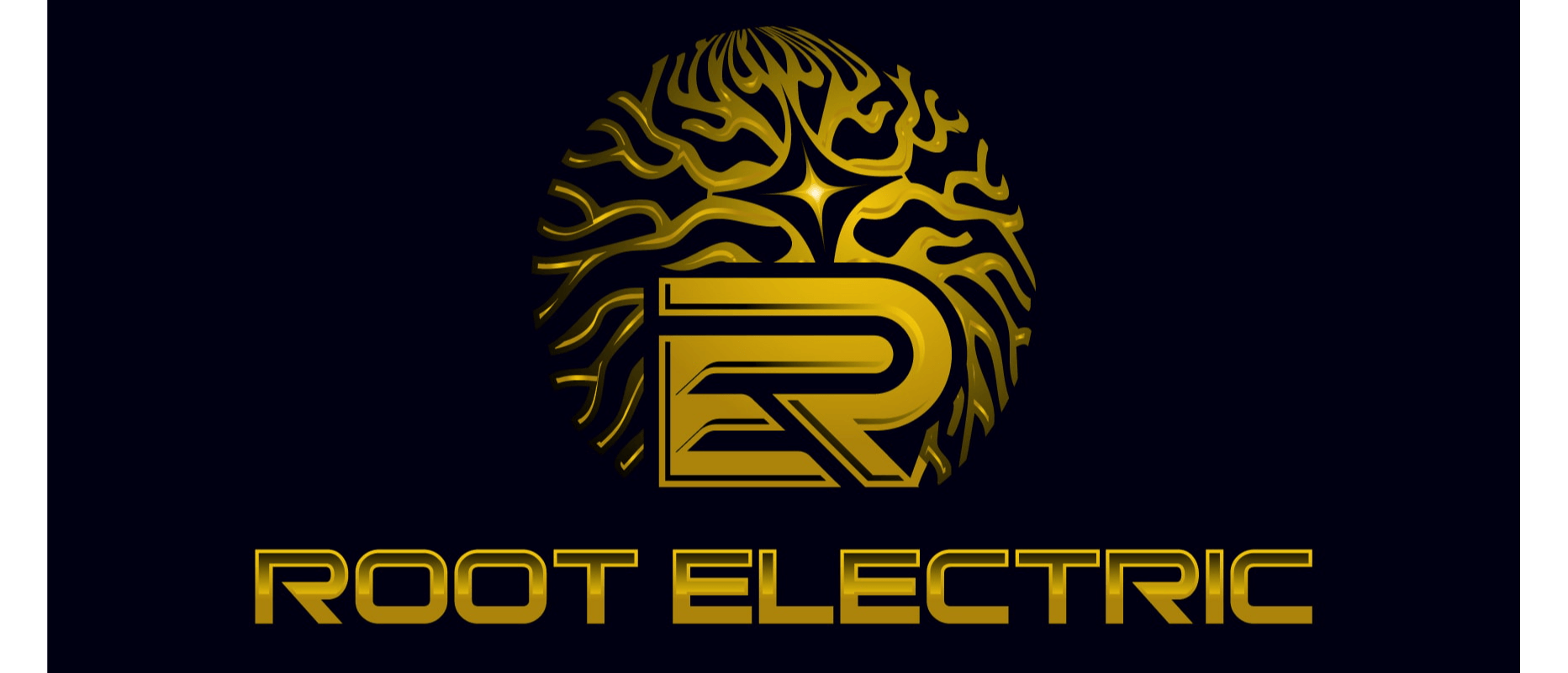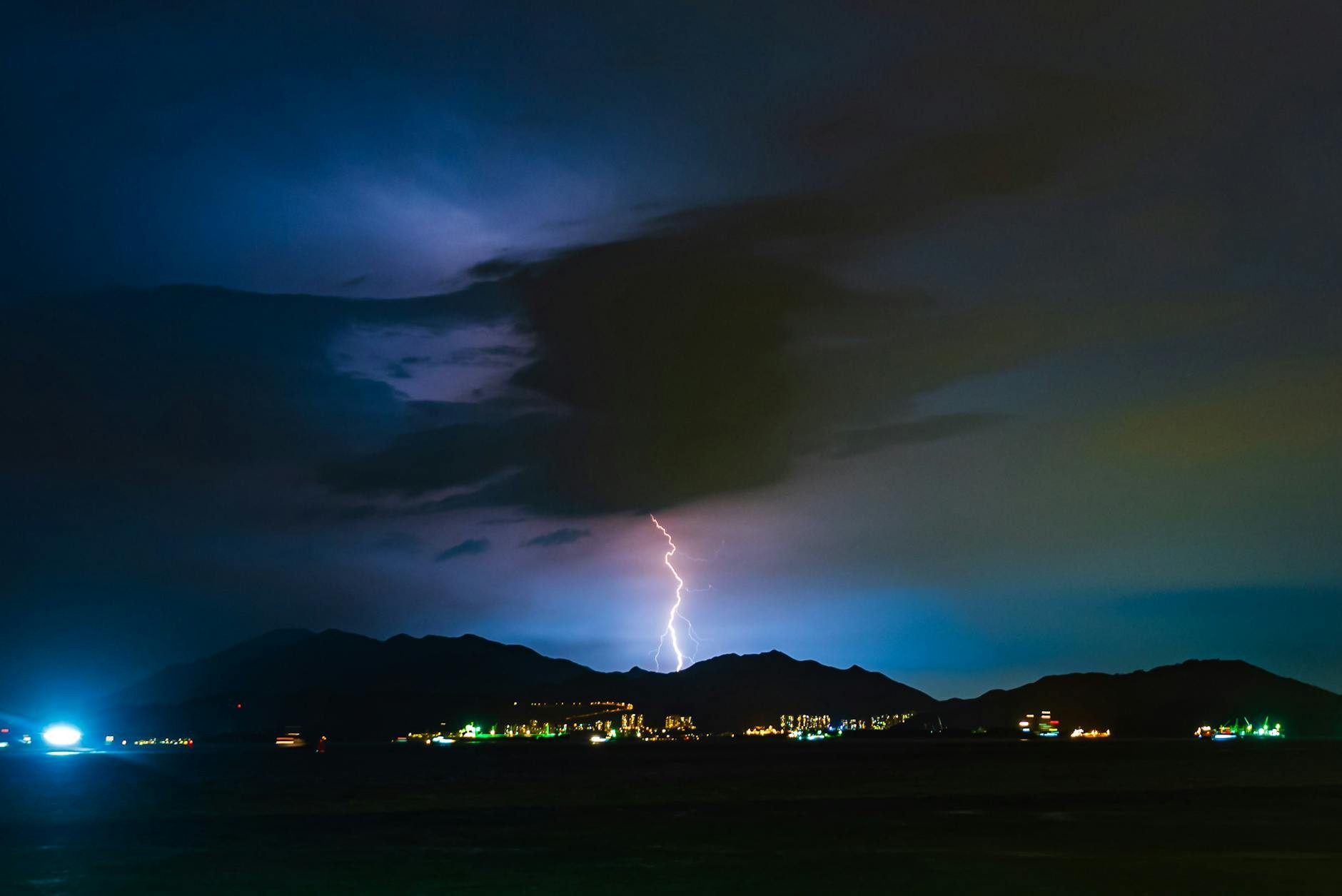Understanding Colorado’s Storm Season
Colorado’s weather is as unpredictable as it is beautiful. On any summer afternoon, blue skies can quickly turn into dark thunderclouds.
For homeowners across Parker, Castle Rock, and Douglas County, hail and lightning storms are more than just noisy — they can cause serious electrical damage.
Lightning strikes—even miles away—can travel through power lines and send thousands of volts surging into your home’s wiring. Meanwhile, hail can dent or crack exterior conduit, expose live wiring, and allow moisture to enter electrical panels.
These damages aren’t always visible right away. Hidden electrical issues caused by storms can worsen over time and create fire or shock risks if not inspected properly.
How Lightning Damages Electrical Systems
When lightning strikes a utility pole or even the ground near your neighborhood, the resulting surge moves through your home’s electrical lines almost instantly.
That sudden spike of voltage can fry sensitive electronics — televisions, computers, appliances, and even HVAC control boards.
If your home isn’t equipped with whole-home surge protection, that energy has nowhere to go but into your outlets and devices.
Surge protectors at the plug are helpful but limited. A panel-mounted surge protector installed by a licensed electrician absorbs dangerous voltage before it reaches your wiring or electronics.
Learn more about Electrical Installation Services from Root Electric LLC, including surge protection and panel upgrades.
What Hail Does to Exterior Electrical Equipment
While hailstones don’t carry voltage, they cause mechanical and moisture-related damage that leads to electrical issues later.
Common problems include:
- Dented conduit that pinches or cracks insulation.
- Broken meter enclosures that let rainwater seep in.
- Loosened connections on outdoor GFCI outlets.
Over time, moisture inside conduit or outlet boxes can corrode connections and trip breakers.
Colorado’s frequent freeze-thaw cycles make this worse, as trapped water expands and cracks fittings during cold nights.
If you suspect hail damage, schedule a professional inspection. A licensed electrician can check for hidden faults, test insulation resistance, and reseal weatherproof boxes.
Visit our Electrical Troubleshooting page to see how Root Electric LLC diagnoses and repairs storm-related issues.
Why Storm Damage Often Goes Unnoticed
Electrical systems can appear to function normally even after a storm — until one small weakness triggers a larger problem.
Some homeowners report issues like:
- Flickering lights weeks after a lightning strike.
- GFCI outlets that won’t reset.
- Tripped breakers that don’t reset immediately.
These symptoms often signal damaged wiring or a failing surge device.
Colorado homes built before 2000 may not have the grounding protection required by modern code, which makes them more vulnerable to surges.
Routine inspections after major storms are key to catching problems before they cause expensive damage.
How to Protect Your Home from Storm Damage
1. Install Whole-Home Surge Protection Root Electric LLC installs surge protection devices at your main panel, blocking power spikes before they reach your circuits or devices.
2. Inspect After Every Major Storm: Have your electrician test breakers, verify grounding continuity, and look for moisture intrusion in outdoor outlets or meter boxes.
3. Upgrade Grounding Systems: Colorado’s rocky soil makes grounding less effective than in other regions. Proper ground rods and bonding are essential to safely discharge energy from lightning strikes.
4. Replace Damaged Equipment Quickly: Even if lights or outlets still work, damaged breakers or wiring can create fire risks later. Address issues right away to avoid long-term complications.
5. Keep Records for Insurance: Document your inspection and repairs. Many homeowner’s insurance policies require proof of professional assessment for storm claims.
Post-Storm Safety Checklist for Colorado Homeowners
- Turn off the power at the breaker if you smell smoke or hear buzzing.
- Visually inspect outdoor outlets, lights, and panels for dents or moisture.
- Reset GFCI outlets to ensure they function properly.
- Unplug sensitive electronics until an electrician verifies system safety.
- Schedule a post-storm inspection with a licensed professional.
Root Electric LLC offers same-day service for post-storm evaluations throughout Parker, Elizabeth, and Castle Rock.
Protecting Smart Homes and EV Systems
Today’s homes are filled with sensitive technology — from smart thermostats to electric vehicle chargers. These systems require a stable voltage to operate safely. Lightning-induced surges can damage control boards or charging ports even without a direct strike.
Installing surge protection on both your main panel and your EV charging circuit ensures full coverage. It’s a small investment that can prevent thousands in replacement costs.
Check out our Quality Workmanship to see how Root Electric LLC ensures long-lasting, code-compliant installations.
Why Hire a Local Colorado Electrician
When it comes to storm-related electrical safety, local experience matters.
Colorado’s altitude, rocky soil, and extreme weather require specialized grounding and sealing techniques that out-of-state contractors often overlook.
Root Electric LLC has worked across Douglas County since 2022, ensuring homes in Parker, Castle Rock, The Pinery, Pradera, and Elizabeth meet NEC current standards.
We handle everything — from troubleshooting and surge protection to complete panel replacements — and coordinate directly with county inspectors.
👉 Learn more About Root Electric LLC
and our commitment to safety and compliance.
Stay Safe and Storm-Ready with Root Electric LLC
Whole-home surge protection and professional inspections are the best defense against Colorado’s unpredictable weather.
Hail and lightning can strike at any time — but with the right preparation, you can avoid costly damage and keep your family safe.
📞 Call (720) 448-4018 or visit the Contact Us page to schedule your storm safety inspection today.


